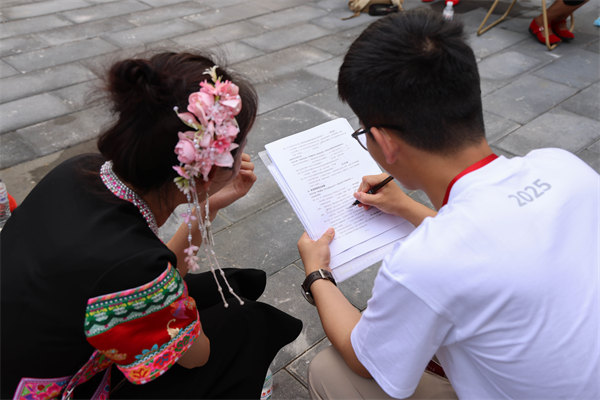Digital natives go rural


Learning by doing
Beyond academic research, participants immersed themselves in hands-on cultural and labor experiences.
They visited local villages to study the rice-fish-duck farming system, practiced traditional Dai pottery — recognized as a provincial intangible cultural heritage — and learned Yi ethnic embroidery.
Xu Tao, Party secretary of SUFE, describes the initiative as an integration of national education, scientific research, labor practice, social engagement, and cultural enrichment.
"Students and teachers move from classrooms to the fields, truly understanding rural life through firsthand experience," he said. "We aim to help students broaden their horizons, develop a deeper awareness of China's realities, and guide their future development through practical exposure."
Now in its third iteration, the program maintains its core mission while adopting innovative research methods.
Zhang emphasizes its growing relevance: "As advanced technologies like artificial intelligence transform society, fieldwork becomes even more valuable. It allows students to engage directly with rural China while exploring their own potential roles in national development."
For students like Wang, the experience has shaped both her understanding of rural e-commerce and her future aspirations.
"I'm now considering solutions that involve the entire village ecosystem, including both educated youth and frontline farmers," she said.
"This field experience has helped me grasp the real needs of rural communities. It demonstrates how academic research can align with national development goals and respond to actual societal challenges."




































